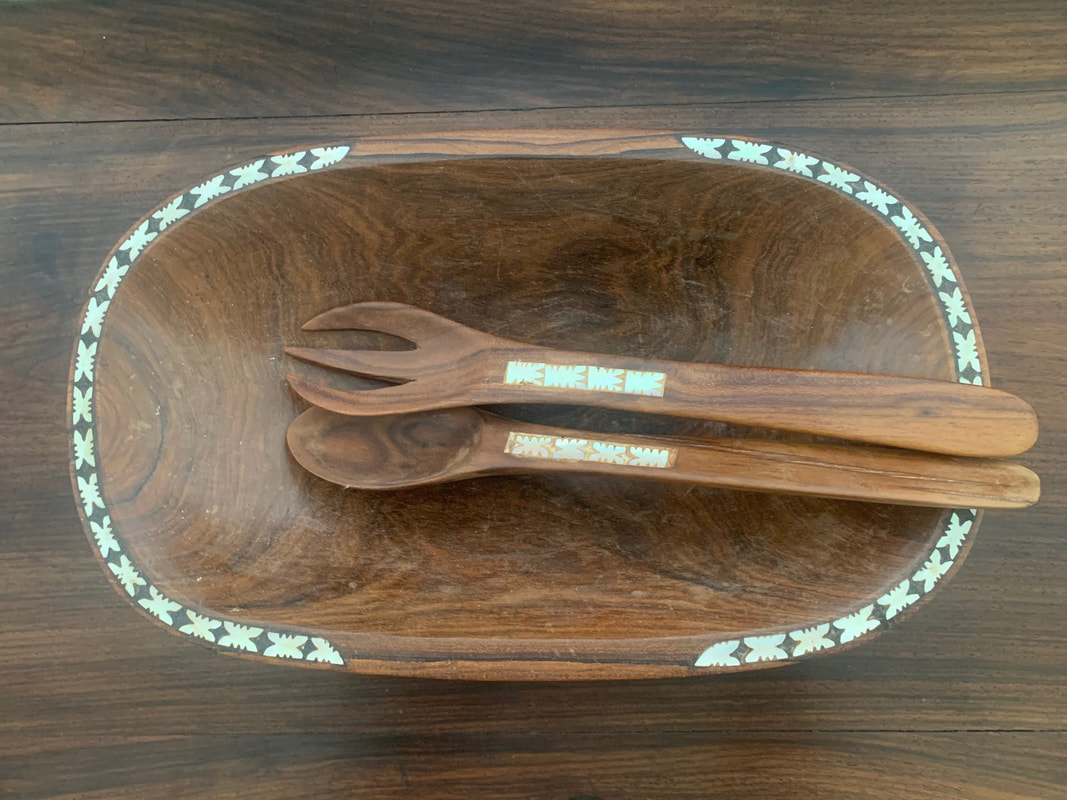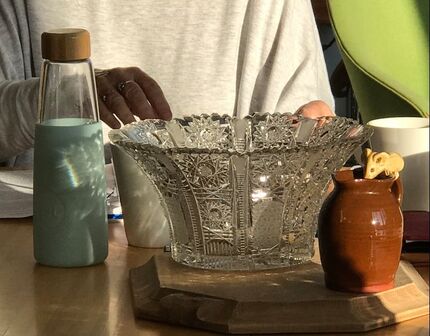 Debbie stopped full time work as an academic four years ago. This has given her time to focus on writing her parents’ story, and has developed into an interest in the writing process itself. She enjoys the challenge of how to capture people, experiences and moments in time. We got off the plane and felt the moist heat wrap around our faces; it was like stepping into a sauna as we walked across the hot tarmac to a shed with a tin roof. Inside it was even more stifling as we snaked our way slowly, in a long line, to be processed by immigration, sweat trickling down our faces, backs and the back of our knees. Thus began the next two and half years on Guadalcanal, Solomon Islands, with Mike working for the British Government’s Overseas Service Aid Scheme (OSAS) initially in the Honiara Technical Institute, later known as the Solomon Islands College of Higher Education, and me, although unbeknown when we first landed, as a translator of Japanese for the South Pacific Forum Fisheries Agency. We were taken to the Mendana Hotel. Bliss, there was air conditioning in our room. The next day we were plunged again into the heat, and taken to meet various staff members. At the first stop we were given neat gin and told: ‘Sorry, we’ve run out of tonic and other soft drinks’. A cup of tea would have been fine but that didn’t seem to be available. I was dehydrated and what little I sipped, seemed to go straight to my head. Then it was on to our new home. We walked into a single storey house, with no light bulbs, no curtains or soft furnishings, no fan, no water heater in the shower, and a double bed even though we had been told to pack for single beds. We had a loan chest with towels, sheets (single of course), melamine plates, cutlery and a few pots and pans to tide us over until our crate arrived from the UK three weeks or so later. There was no TV, only local radio or what we could pick up on short wave radio, although we were often invited to watch a video on a TV monitor as we made new friends and got invited into their homes for meals. I learnt to shop in the local market — the soil is poor in the Solomons and fresh greens were limited to local fern-like plants that went slimy if you cooked them too long. The saving grace were cheap bananas and plentiful pawpaw which we later grew in our garden from the seeds. Fresh Western fruit and vegetables were expensive — an apple cost 90 cents and a lettuce $3, this was 1984 — and available only when the ship arrived about every three or four weeks. You had to be quick to get to the shop in China Town before they sold out. There were two supermarkets, one being a small Foodtown which sold cheese that was out of date and beginning to go mouldy – rejects from New Zealand. Although we had said we wouldn’t employ any help, we did within a few weeks when I realised that housework and laundry were difficult without the usual convenient equipment, in that environment. This was when we met the lovely Irene, a 54 year-old Solomon Island woman who’d had polio as a child which affected her gait. She’d been asking for work in the market and a friend suggested I employ her. She was old for a Solomon Islander and had $12 left in the bank. She was special. I really believe she was sent to look after us, even though she was a bit calamitous with her ironing and breakages. It was a challenging experience, hot in the dry season and even hotter in the wet season, and totally draining of one’s energy; we lived through a cyclone and an earthquake, and learnt to navigate ‘Island Time’. We had to take antimalarials to protect us against the malaria carrying mosquitos present from dusk until dawn, there was a deadly snake, big spiders, poisonous seashells, saltwater crocodiles and the occasional shark. Our underwear was often attacked by ants — they loved the elastic. But I wouldn’t have missed it for the world. I learnt the value of clean water, electricity, secure supplies of fresh food, and I learnt to be resilient. I realised the importance of building relationships and making friends, and the pleasure of sharing a simple meal with them. This bowl, a gift from a Solomon Islander, with its smooth surface and rim of mother of pearl inlay, is my reminder of that very special time, and keeps me grounded whenever I touch it.  Sandy is beginning to organise and put together her growing collection of autobiographical and biographical snippets. Most are of her own life and the lives of her family; some are of her husband’s ancestors. They are intended primarily for her two daughters but sometimes others read and enjoy them too. She is particularly interested in the women’s stories, harder to find and less often told than the men’s. It isn’t hard to picture you filled with my mother Beti’s sherry trifle. You were lifted down from a high cupboard for many special events and filled with layers of sherry-drenched sponge, chopped almonds, fruit salad, custard, topped with whipped cream and decorated with whole blanched almonds. I watched and helped Mum make this dessert so I can easily remember the recipe. We would do it differently now, with fancier custard, fresh berries and perhaps an almond liqueur in place of the sherry. Just looking at you brings to mind the friends and family you served at many parties and Christmases. But you had a greater purpose too. A mother in Prague carefully wrapped you and packed you in her eighteen-year-old Marki’s suitcase before farewelling her. It was 1968, and she was sending her daughter to Leicester as an au pair to a family she had never met, my family. Beti appreciated what a generous and precious gift you were, heavy cut crystal, curvy in shape, embodying a silent plea to nurture a girl who might never return home. I don’t know when you arrived, but perhaps it was the summer holidays and, I guess, before August when the tanks of the Soviet and Warsaw Pact armies rolled through the streets of Prague to supress the Prague Spring. Little did I know, aged seven, as you were unwrapped by my mother, the hopes and fears attached to you. You travelled again in 2012, after Beti and Dexter were gone, much farther than your first trip. You flew this time with me to the other side of the world, to Auckland, for another life, with our family, carrying your history and your memories. …………………….. You, little mouse, were a Christmas gift from Mum that surprised and delighted me. Before the advent of online shopping, my family and I exchanged Christmas parcels between England and New Zealand. So unsuited to parcel post were you; a handle is always at risk, but all of you, and especially your ears, could have been damaged in transit or since. Mum and I both loved the Robert ‘Mouseman’ Thompson cheeseboard that great Uncle Lester bought in Yorkshire. She must have thought of me and of him when she picked you out as a gift not too heavy to post. |
Your StoriesPlease submit your story via the Contact page and it will receive a gentle edit from Deborah.
Authors
All
Archives
December 2022
|
 RSS Feed
RSS Feed